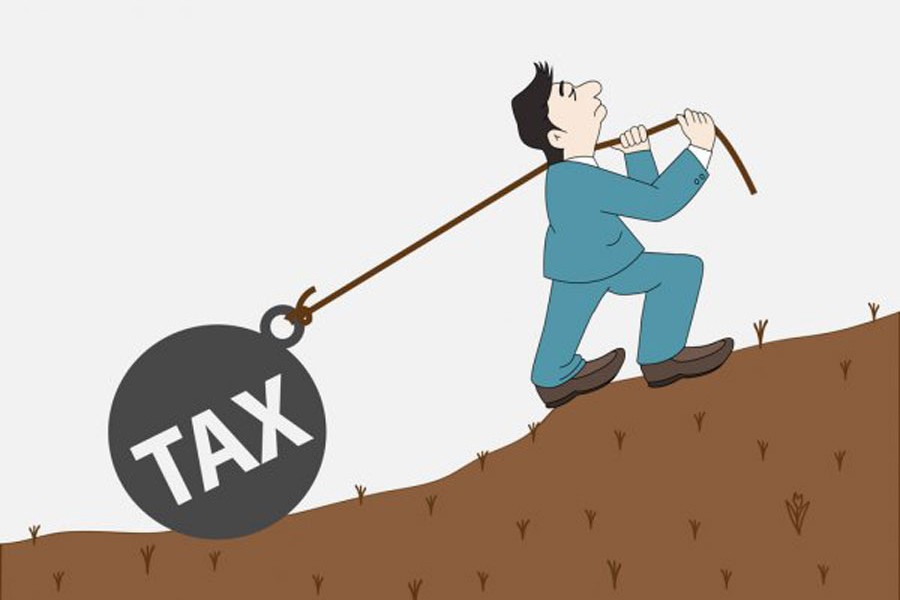The revenue authority does not have any specific fund allocation for spending on information communication technology (ICT), creating an uncertainty over timely execution of its digitization initiatives.
Officials said the digitization initiatives of the National Board of Revenue (NBR) are, however, being implemented on need-based allocations, but that often cause delays.
Talking to the FE, NBR Chairman Abu Hena Md Rahmatul Muneem acknowledged that the NBR has no separate budget allocation for these purposes.
The NBR implements the ICT projects based on requirements for specific purposes, which according to the officials, often face delays to release due to procedural complexities.
Bangladesh is lagging behind on ICT expenditures among all other South Asian countries.
Kazi Mustafizur Rahman, Customs Commissioner of Risk Management Unit of the NBR, said there is an annual fund allocation for Asycuda World project, but not any separate budget allocations for ICT expenditure.
The taxmen have to obtain approval from the board administration of the internal resources division (IRD) for getting funds for ICT or other expenditures.
It has been found that a pool of young tax officials are innovating applications such as e-return for online return filing for individual taxpayers, e-verification module for verifying tax return slips by tax deducting authorities and e-TDS for collection of tax deducted at source and monitoring with their own initiatives.
A senior tax official said that such piece-meal initiatives are inspiring but would not help the income tax department to automate its entire services without integration with one module to another.
He said a comprehensive project to integrate the modules has to be launched to get results of such innovations.
The ICT initiatives should be supported by providing adequate fund allocations, he said.
According to a recent report of the Asian Development Bank (ADB), ICT expenditure in domestic revenue mobilisation as a share of total expenditure is one of the lowest in Bangladesh among the South Asian countries.
A total of 14 revenue bodies of different countries, including Bangladesh, spent less than 5.0 per cent, over the last four years, of their total annual operating expenditures in ICT for mobilization of domestic revenue.
Other revenue authorities included Philippines, Taipei, China, Georgia, PRC, Indonesia, Uzbekistan, Pakistan, Kyrgyz Republic.
Singapore Inland Revenue Department (IRAS) emerged as the lead example of an ICT-investing revenue body.
According to the ADB report, Bangladesh is lagging behind development and use of technologies by revenue bodies in this region.
The revenue authority in Bangladesh has not started using innovative technologies such as block chain, Artificial Intelligence, and cloud technology.
AI is under implementation stage and cloud technology is operational in India, according to the ADB findings.
The annual report of the Bangladesh's revenue authority, for fiscal year 2019-20, said the NBR has budget allocation for expenditure in some administrative areas. The expenditures include: customs office in Brussels, Prize money, Bandroll and Stamp printing.
The NBR spent Tk 6.69 billion in FY 2019-20 for its administrative purposes against aggregate collection of tax revenue worth Tk 2.16 trillion.
According to NBR, the expenditure of collecting Tk 100 domestic revenue in Bangladesh is Tk 0.31, lowest among the South Asian countries.
The NBR has an IT team comprising around 30 officials. However, its high-ups are in doubt over their capacity and skills to manage the high-end ICT-based system due to lack of adequate training.
Aminur Rahman, former income tax member of the NBR, said the problem lies in NBR itself as it is indecisive about preparing a viable project and seeking funds from the Ministry of Finance.
Several projects, including Management Information System (MIS) under TACTS project, of the NBR went in vain earlier, he said.
A total of Tk 200 million was allocated for the project to prepare a data-base and purchase hardware. However, a tiny part of it has been utilised to procure hardware while efforts of a pool of taxmen who entered data in the MIS have been reverted terming the system ineffective, Mr Rahman said.
The ADB report quoted a data of the IRAS annual report for 2019-20, showing its ICT expenditure that represented 27 per cent of their total operating expenditure which was 26 per cent the previous year.
"This level of investment in ICT continues a pattern that IRAS has pursued for many years and clearly has been a significant factor in enabling it to deliver exceptionally high standards of service and tax administration more broadly," the ADB report said.


